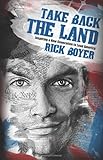 Though most people nowadays can conceive of no better poster child for agnosticism (or, at the very least, deism), Jefferson himself may have had a bone to pick with such people.
Though most people nowadays can conceive of no better poster child for agnosticism (or, at the very least, deism), Jefferson himself may have had a bone to pick with such people.
In a letter to his nephew, on the topic of forming his own views on religion (a topic which he labeled “important”), Thomas Jefferson wrote the following, now reasonably well-known words:
Fix reason firmly in her seat, and call to her tribunal every fact, every opinion. Question with boldness even the existence of a God; because, if there be one, he must more approve of the homage of reason, than that of blindfolded fear.
(Somewhat of an aside: My favorite quote from Thomas Jefferson’s autobiography regarding his own faith, “…I am a REAL CHRISTIAN…”. Well that about says it.) 🙂
There are (many) times when I think my being appropriately labeled a “Christian” might be questioned by those who determine such things. I believe I’ve written about my borderline-heretical thinking at least once or twice.
In fact, just the other day I was reading through the Old Testament book of Ezekiel and wondering things like, “Wow, this voice of God does not seem to be the same as even the book of Jeremiah, one book before—and he seemed pretty peeved in that book, too! I wonder if some of the books in what we call the Bible are even supposed to be in there? Who says that council got it right?”
Now, proceed with caution here. I am NOT SAYING that I unequivocally, irrevocably believe and hold to be fact that such questions even might be “true” (in the black-and-white sense of “true”) …
But perhaps my reason for such an emphasized statement above is that, in dealing with things of God, it’s sometimes considered heresy merely to question.
And, folks, that is plain wrong. Really, really wrong.
So, I may be a heretic, but I’m going to keep questioning.
Turns out, by the end of Ezekiel there was some really neat stuff in there kinda flipping the “rules and regulations” voice of God (being interpreted through Ezekiel) on its head. Chapter forty-seven has a really neat image of God abiding in a temple from which living water flows, giving life to everything it touches, including dead things. Hmm… the Living Water… giving Life… where have I heard those things before…?
I believe Thomas Jefferson had it right when he urged his nephew to throw away all bias and personal opinion and really dig into the facts, evidences, truths, and his own reason. Think. Don’t be afraid of the truth (or that it might not be the truth). Find, and know what is true. This is important! To know and understand the Creator is much more important than anything else.
I have come that they may have life, and have it to the full. —John 10:10
I am the way, the truth, and the life. —John 14:6
And this is the way to have eternal life—to know you, the only true God, and Jesus Christ, the one you sent to earth. —John 17:3
We believe in education in this home. Not school, or curriculum—although those can have their place.
Real education. Seek out original sources; find people who are not only knowledgeable but passionate about a subject and learn from them (whether in person, or through recorded words); then, find someone else and hear other voices. Putting all of these pieces together, along with your God-given intellect (reason), and asking the Spirit to guide the entire process. (He is the one who teaches us, after all.)
Question with boldness, even the very existence of God.
And the world—starting with you—will be better for it.
If you wondered about that “I am a REAL CHRISTIAN” quote from Thomas Jefferson, here’s the full text of his introduction to what some call the “Jefferson Bible” (but he titled otherwise). It should give an even more convincing context to that quote!
I have made a wee little book from the Gospels which I call the Philosophy of Jesus. It is a paradigma of his doctrines, made by cutting the texts out of the book and arranging them on the pages of a blank book, in a certain order of time or subject. A more beautiful or precious morsel of ethics I have never seen. It is a document in proof that I am a REAL CHRISTIAN, that is to say, a disciple of the doctrines of Jesus, very different from the Platonists, who call ME the infidel and THEMSELVES Christians and preachers of the Gospel, while they draw all of their characteristic dogmas from what its author never said nor saw. They have compounded from the heathen mysteries a system beyond the comprehension of man, of which the great reformer of the vicious ethics and deism of the Jews, were he to return on earth, would not recognize one feature. (Thomas Jefferson: In His Own Words, Maureen Harrison & Steve Gilbert, editors. ©1993 Excellent Books, New York, NY.)




 The above quote (with my emphases added) is from
The above quote (with my emphases added) is from 